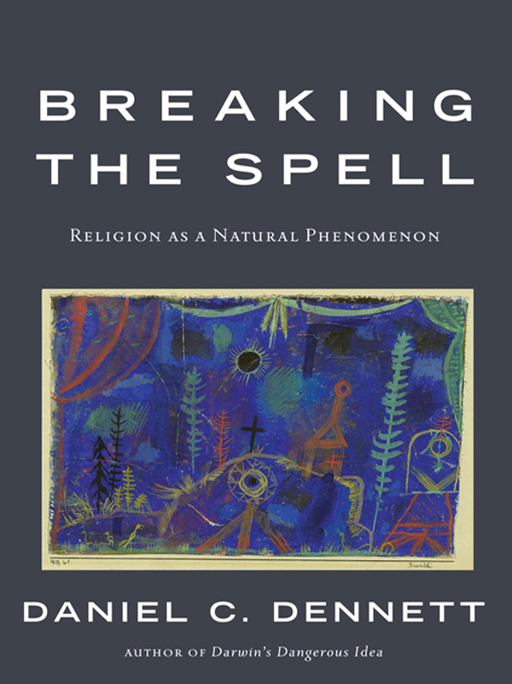
Breaking the Spell
Religion as a Natural Phenomenon
- اطلاعات
- نقد و بررسی
- دیدگاه کاربران
نقد و بررسی

November 28, 2005
In his characteristically provocative fashion, Dennett, author of Darwin's Dangerous Idea
and director of the Center for Cognitive Studies at Tufts University, calls for a scientific, rational examination of religion that will lead us to understand what purpose religion serves in our culture. Much like E.O. Wilson (In Search of Nature
), Robert Wright (The Moral Animal
), and Richard Dawkins (The Selfish Gene
), Dennett explores religion as a cultural phenomenon governed by the processes of evolution and natural selection. Religion survives because it has some kind of beneficial role in human life, yet Dennett argues that it has also played a maleficent role. He elegantly pleads for religions to engage in empirical self-examination to protect future generations from the ignorance so often fostered by religion hiding behind doctrinal smoke screens. Because Dennett offers a tentative proposal for exploring religion as a natural phenomenon, his book is sometimes plagued by generalizations that leave us wanting more ("Only when we can frame a comprehensive view of the many aspects of religion can we formulate defensible policies for how to respond to religions in the future"). Although much of the ground he covers has already been well trod, he clearly throws down a gauntlet to religion.

January 15, 2006
On a crusade against crusades, Dennett (philosophy, Tufts Univ.; codirector, Ctr. for Cognitive Studies; Consciousness Explained) wants to save the world from religious fanaticism and figures that the best way to do so is to -break the spell - of its supernatural pretensions by giving a purely naturalistic, evolutionary account of the development of religion. Although Dennett specializes in philosophy, not biology, he is no newcomer to evolutionary theory; in Darwin's Dangerous Idea (1995), he took on the role of a modern T.H. Huxley and popularized sociobiological accounts of distinctly human phenomena such as language and morality. Here he reports in clear and vigorous prose on cutting-edge evolutionary explanations for various religious beliefs and rituals and in the concluding chapters makes some provocatively illiberal political suggestions. But Dennett can also take on the strident, self-righteous tone of the zealot, and the hypotheses he presents, though ingenious, are too conjectural to dispel the charm of the sacred. Still, his reputation and the timeliness of his topic would seem to make this book a necessary purchase for most public and academic libraries. [See Prepub Alert, LJ 10/15/05.]" -Charles Seymour, Wayland Baptist Univ. Lib., Plainview, TX"
Copyright 2006 Library Journal, LLC Used with permission.

January 1, 2006
A century and a half after Darwin rattled religionists with his revolutionary theory of human origins, one of his disciples has intensified the challenge to faith by advancing an evolutionary account of religion itself. Weaving together research in anthropology, genetics, and psychology, Dennett argues that religion first emerged not as a divine gift but rather as a thoroughly natural adaptation for enhancing the reproductive success of the species. Even more provocatively, Dennett further argues that religion--like language--has subsequently evolved so as to ensure its own survival in the ceaseless winnowing of cultural mutations. The pious in most faiths will likely protest that this approach gives only the husk, not the spirit, of religion, but Dennett insists that his study will ultimately benefit society by exposing the myths that empower fanatical terrorists. Remarkably bold, Dennett's agenda includes plans for preventing overzealous parents from instilling their faith in their children and for deploying the technology of mass advertising to foster religious doubt. A book certain to spark heated controversy.(Reprinted with permission of Booklist, copyright 2006, American Library Association.)




دیدگاه کاربران